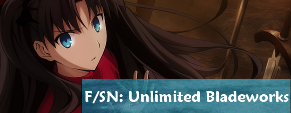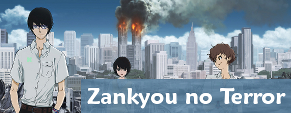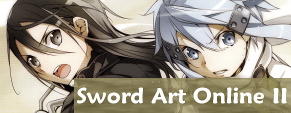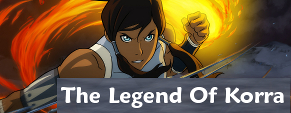Fate/Zero – 01 Review (Light Novel)

With the Fate/Zero-anime coming up, I will post a review for each volume of the Fate/Zero-Light-Novel-series.
This series is the dark spin-off of the Fate/Stay-Night-Visual-Novel and tries to take a serious look at the fourth Grail War with Emiya Kiritsugu, our dual-natured mass-murderer-hero, ready to save the day (or not) and Saber on the Servant-side to show us how much it’s worth to be chivalrous.
Introduction:
„Fate/zero takes place 10 years prior to the events of Fate/stay night, detailing the events of the 4th Holy Grail War in Fuyuki City. The War of the Holy Grail is a contest in which seven magi summon seven Heroic Spirits to compete to obtain the power of the “Holy Grail,” which grants a miracle. After three inconclusive wars for the elusive Holy Grail, the Fourth War commences.
Founded by the Einzbern, Matō, and Tōsaka families centuries ago, the Einzbern family is determined to achieve success after three successive failures, no matter the cost. As a result, they have elected to bring the hated magus killer, Kiritsugu Emiya, into their ranks, despite his methods and reputation as a skilled mercenary and a hitman who employs whatever he can use to accomplish his goals. Though Kiritsugu had once wanted to become a hero who could save everyone, he has long since abandoned this ideal upon realizing that saving one person comes at the cost of another’s life. For the sake of humanity, he will ruthlessly destroy anything and anyone who threatens the peace of others.
However, Kiritsugu finds himself deeply torn between the love he has found for his new family – his wife Irisviel and their daughter Illya – and what he must do to obtain the Holy Grail. Meanwhile, Kiritsugu’s greatest opponent appears in the form of Kirei Kotomine, a priest who cannot find any sense of fulfillment in his life and sets his sights on Kiritsugu as the possible answer to the emptiness he feels.“– Wikipedia
Longer than the usual Light Novel, the first volume of the Fate/Zero-series written by Gen Urobuchi (who also wrote the story for Madoka Magica) does try to tell you very directly that you won’t find any rainbows or happy kobolds in this book. It’s dark and it tries to be dark – and that’s how I like it. The gritty dark fantasy genre does appeal to one with a cynic humour like me. So this book should be my „cup of tea“ and I definitely began to read it with some expectations as to how much more I would like it compared to Fate/Stay Night.
Format/Classification:
The Novel’s main location is Fuyuki but the prologue does include various foreign settings as to explain where the whole cast come from that will be important in the rest of the first volume. After that prologue the plot stays in Fuyuki and the place isn’t really important per sé. It’s just the location (seemingly) chosen by chance for the Grail War.
The perspectives aren’t really set and change depending on the plot. The three main-plots (compared to the other perspectives as how often they appear) are that of Irisviel Einsbern with Saber, Waver Velvet with Alexander, Kirei Kotomine and Emiya Kiritsugu. But the story uses a lot of side-characters that come into focus from time to time. But there is no purpose to the change of perspective besides telling the story as the writer intends to, especially fights have a change of perspective in the middle of the actions as great scenes are supposed to get mutltiple views here.
Fate/Zero Vol. I is a pure fantasy-action-story as it tries to concentrate the plot on progressing it by action but it also has something of a quest-story. The characters who participate in the Grail War aren’t just there to get a wish granted by the Grail but also are sort of „personally involved“ and the first pages that describe Emiya’s character make clear that this will be not only a fantasy-story concentrated on action but also a character-related story that shows the change of the characters during the plot.
Analysis:
The first pages may make you believe that this Light Novel tries to show you how Emiya redeems himself but it doesn’t. A very long theatrical introduction makes clear that Emiya is a beast of dualism but his role is rather little in the adventures of this book.
The book in general ponders about all sorts of things but never goes very deep with it despite how it may sound while reading. For example, the Grail War seems like an epic conflict between mage-clans and the Holy Church as mediator but in the end it’s all personal. There’s much talk about epic stuff but in the end it all comes down to a few persons talking with each other and the Grail War with its structure is already very personal but it did seem like the Light Novel tried to show the background of the whole thing but in the end it might as well has talked about empty air for all it mattered to the story.
The story relies mainly on its characters and it’s made very clear how important it is that each of the Masters wants the Grail for a very personal reason that signifies the character of that person. But the only person who really succeeds in that department are Emiya and Kirei, the rest never go beyond „I want this when I have the Grail!“ in terms of complexity. Especially Waver Velvet is a ridiculous character who obviously is part of the Grail War for a rather petty reason – and he knows it… but the story just wouldn’t let him go or gives him the chance to evolve. Also, because Alexander needs a straight guy as a sort of comic relief it does seem like a very anime-typical stereotype.
That’s another thing where the characterization fails: Kings. The story does try to present three models of kings: Alexander, the king of barbarians (never mind how far off his depiction is considering the historical background); Arturia, the king of knights; Gilgamesh, the king of kings. But there’s nothing philosophical about this part of the story, it’s just sort of a matter of what the story wants to be defined as good and what as bad which makes Arturia naturally the ideal of how a good king should be as the story wants to see it and Alexander sort of good and Gilgamesh definitely bad. But there is no real philosophical thinking involved, nobody quotes Machiavelli or something like that, it’s all very general and common-place as far as philosophy goes.
But that doesn’t mean if Saber can win the day without any difficulties. Actually the author wrote in the after-word how this series will be about Saber getting her ass kicked. And that’s what he does by showing us in multiple ways the weaknesses of Saber while having gushing praise for all the ‚extra’-stuff of the other servants. Sure, she’s supposed to be the strongest servant in a fair fight but it’s hard to see that when every servant has his special ‚Noble Phantasm’ ready to take control of the situation making it then practically “unfair”. It isn’t a very nagging fact while one’s still reading but in retrospection it did occur to me that Saber wasn’t really represented in the kind of „good light“ that the other servants got for being „supernaturally strong and special“.
And ‚special’ is another trouble-area of Fate/Zero as it does something what no fantasy-story should do: It explores the exceptions instead of the rules. Of course there is a sort of very basic magical system but then the ‚Noble Phantasms’ come along and bury it with all their ways of not following the „rules“ which means that there’s no real system beside the logic of each ‚Noble Phantasm’ that participates in the conflict. And that can be said about the setting in general: you may have an epic background whose importance is mentioned but in reality what really matters are the characters you get to see in the novel because most of the times these are „special“ anyway mostly for known reasons but sometimes it’s just hinted at it how „special“ these characters are supposed to be.
So despite the dark vibe you get to feel in this story, it’s still a very heroic story in nature with characters using great powers for their own interest and without a hint of whiny lamenting. Story-wise it does have a nice shounen-feeling but it’s still something far darker and more serious than what one usually encounters in this genre which makes it quite a refreshing story compared to the usual Japanese Shounen-like-Light-Novel. The writing-style is also very good in keeping the action going and doesn’t really stop at any point. It’s really fast-paced although it’s obvious how this one is only the first volume of four but it is exciting and as long as one doesn’t think too deeply about the setting it gives a good enough background for the action to develop without letting it get ridiculous or involve your suspense of disbelief.
One complain that has nothing to do with this Light Novel specifically are these „protection barriers“, these flimsy explanations for why supernatural things can happen in city-areas because these „protection barriers“ will keep the normal folk outside. This is just a very cheap excuse for not involving the real world and that’s what keeps these stories from going into „Urban Fantasy“-territory but I don’t think it would be something bad to think about introducing the real world to the fantasy world of these stories.
While I as vivid fantasy- and sci-fi-reader didn’t get very much interesting stuff to read with this Light Novel, I can’t disagree with the fact that it was written very good as a short exciting break from the daily life. What the setting lacks in depth, the story makes up for with ist fast action-loaded pace. But it’s ending definitely lacks any kind of closure, therefore one should read the first Light Novel only to have the next one ready to continue.
Rating: 7/10
Posted on September 14, 2011, in Anime, Fate/Zero, Fate/Zero, Novel, Reviews and tagged Fate/Zero, Light Novel Reviews. Bookmark the permalink. 4 Comments.


















Nobel Phantasms don’t really break the rules IMO, and Saber would beat Lancer, Caster, Assassin pretty easily in an all out fight. I believe the fate universe states that Sabers are generally the strongest class, but the spirit summoned definitely plays a large role as well.
Gilgamesh beats Saber because he’s super broken, Berzerker is also similarly broken, but whether or not he would survive an excaliblast is debatable. Rider vs Saber is also debatable IMO.
And of course Saber> all if she has lolAvalon.
LikeLike
Yeah, but that just underlines how much these rules rely on plot-convenient flashiness. You start out with all these rules but when you start explaining the plot you have to add a lot of “but”s to those explanations.
LikeLike
I have to disagree about the three kings section
In my opinion these three represent three type of ruler
1. A tyrant : gilgamesh
2. A leader : alexander
3. Public servant/martyr : saber
LikeLike
That’s actually my point: Those three characters, as far as that theme is concerned, are just playing roles without really having too much of an in-depth discussion about what being a leader means. The only one that comes close to being interesting is Saber’s Background and how the characters talk about it in this series. The other two, though, are simply not very subtle variations of being evil and being good.
LikeLike